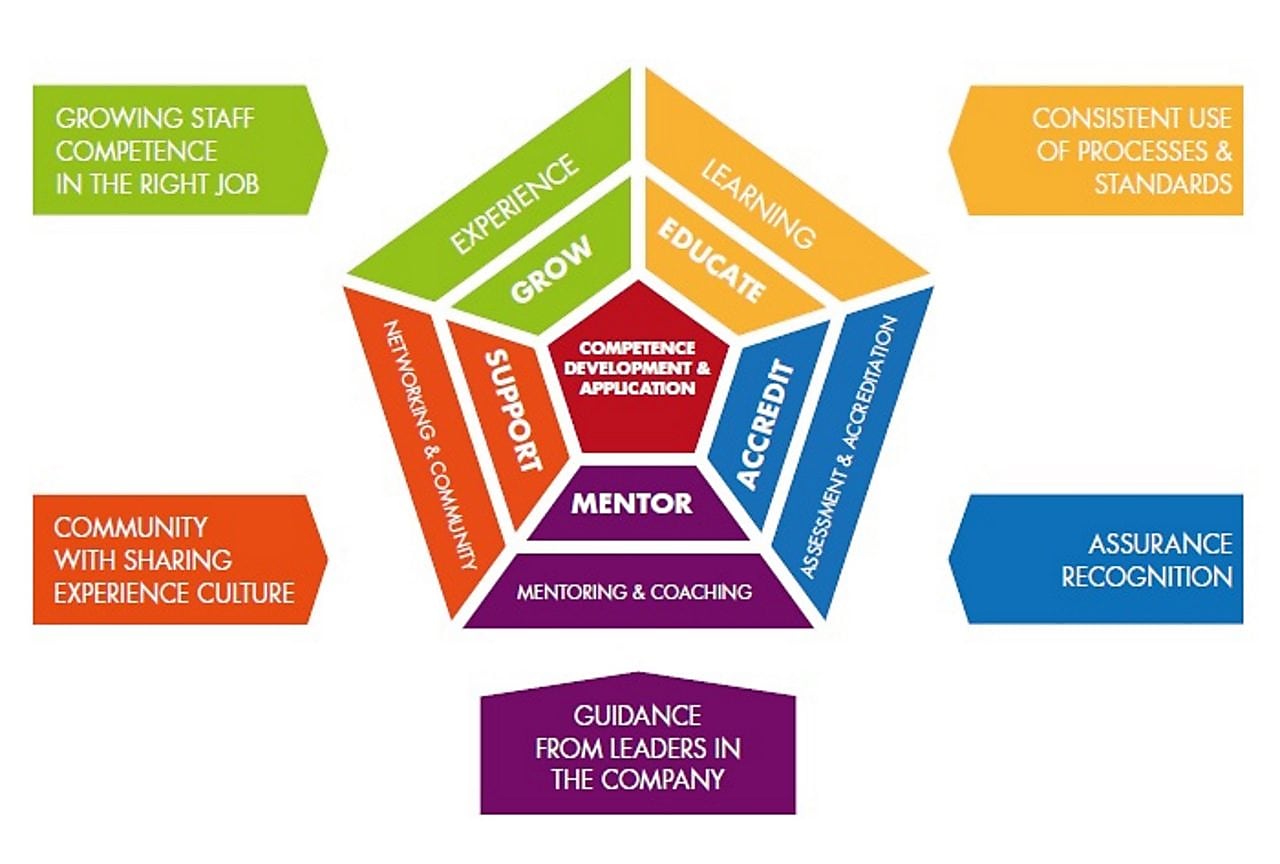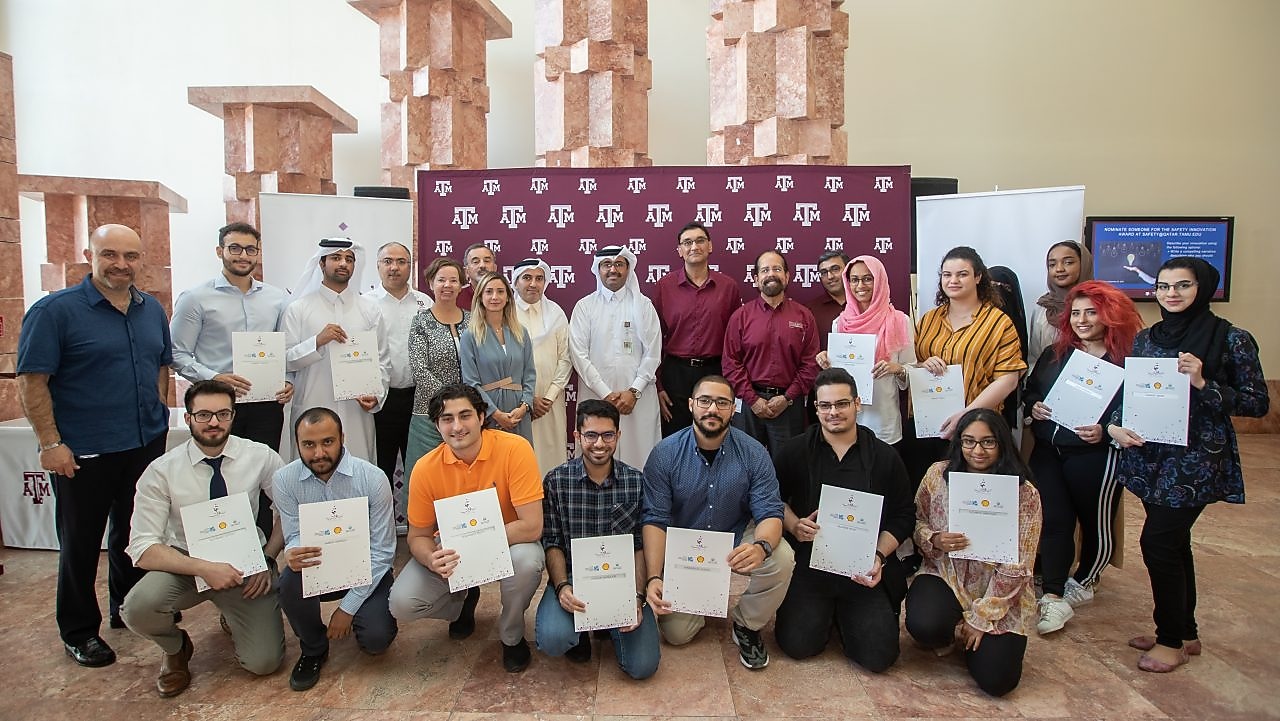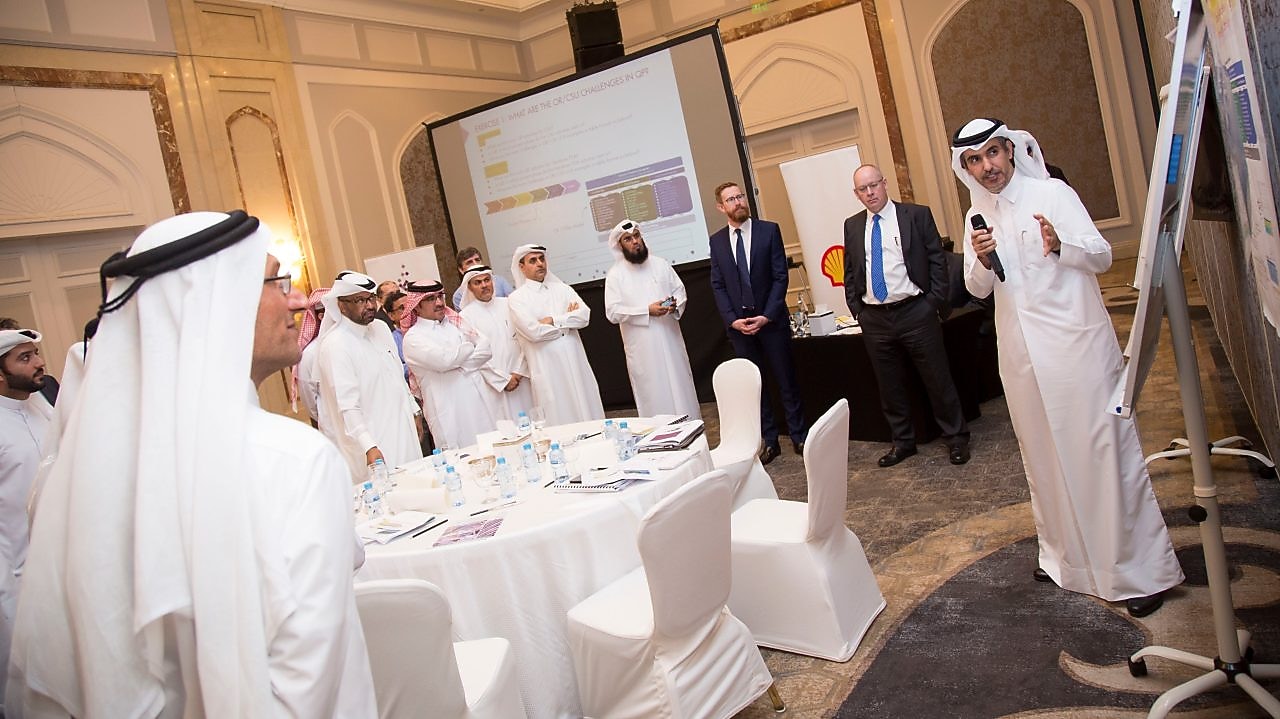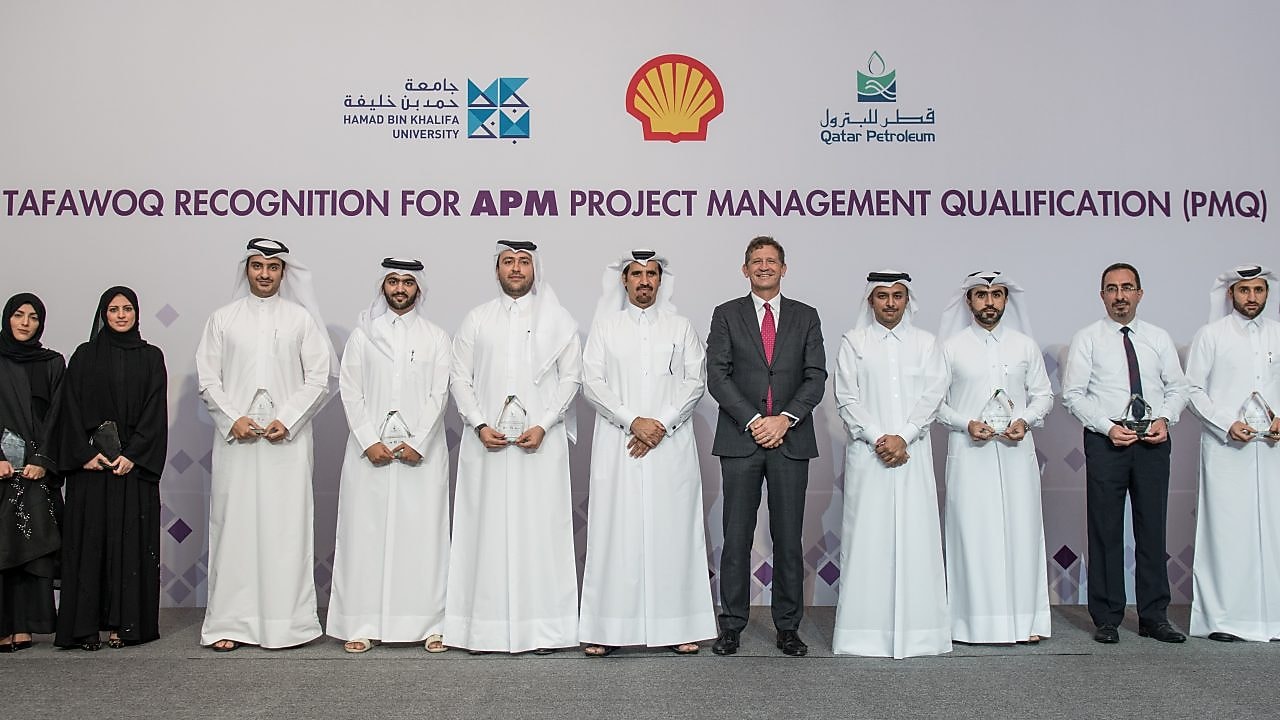
Tafawoq’s Approach
Our participation in TAFAWOQ’s courses will ensure considerable enhancement of your professional project management competencies and skills through modules delivered by our world-class tutors
Our syllabus is delivered through a series of virtual, work-based and face-to-face trainings, all of which are based on the internationally accredited Shell Project Academy ‘Pentagon Model’ Curriculum, while drawing from QatarEnergy’s experience of successfully executing large-scale capital projects.

The TAFAWOQ integrated programme is based on the five internationally recognized dimensions of professional competency development, originally devised by the International Project Management Association. Moreover, the TAFAWOQ ‘Pentagon Model’ adopts a five-dimensional approach to competence development, illustrated in the diagram below.
At TAFAWOQ the foundation of your knowledge will be laid through classroom instruction. Once attained, your learning will then be developed through practical ‘on-the-job’ experience, designed to allow you to master your newly acquired skills. Furthermore, to ensure your continued professional development, you’re learning process will be augmented by an established community of professionals who will support you through active coaching and mentoring.
However, before you attain certification from The Association for Project Management (APM), you will be required to undergo an assessment of your newly obtained skill sets.
The Key Elements of ‘The Pentagon Model’
Educate
Our programmes are delivered in association with four elite international universities, TU Delft University of Technology in the Netherlands, the Cranfield School of Management in the UK, the University of Texas at Austin in the US, and the Queensland University of Technology in Australia. At TAFAWOQ content quality assurance and programme delivery are coordinated by the Shell Project Academy in conjunction with the British Association for Project Management, all in accordance with the International Project Management Association standards. Therefore, the centre’s elite global partnerships not only reinforce its credibility, but favorably position it as a recognisable Project Management Centre of Excellence across the region.
Grow
Practical experience is the cornerstone of successful competence development. At TAFAWOQ we address all levels of project management proficiency, all the way from awareness and knowledge to skill and mastery. Furthermore, the TAFAWOQ team and its network of experts will assist you in the application of your newly acquired skills through various means, one of which is the ‘We’ve taken it Back to the Business’ coaching session.
Support
TAFAWOQ provides the basis of a knowledge transfer platform bolstered by regular community events and an online portal. By taking part in our programme you will essentially be helping to lay the foundations of a regional community of project management professionals propagating a self-sustaining learning cycle.
Mentor
Through our guidelines and best practices we unlock the knowledge and experience of senior professionals and transfer them to junior counterparts
Accredit
Assessment and accreditation are central to the development of the project management profession in Qatar and the surrounding region. The role of The Association for Project Management (APM) is to provide a standard against which the competency of project professionals can be measured. Therefore, at TAFAWOQ we have aligned our integrated competence development programme with this internationally respected organization in order to facilitate the assessment and subsequent accreditation of participants on our courses. Participants of the Essentials of Project Management Course (EoPM+) can go on to take a formal examination and receive the APM PMQ qualification.


